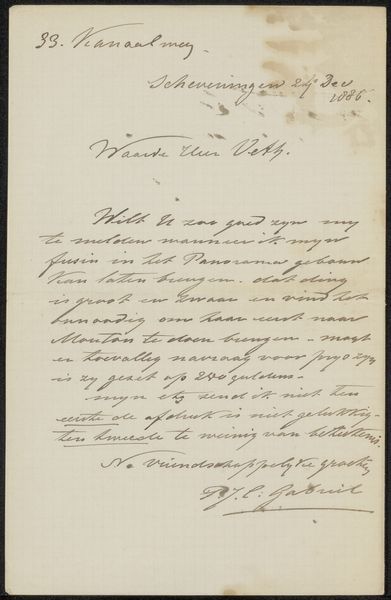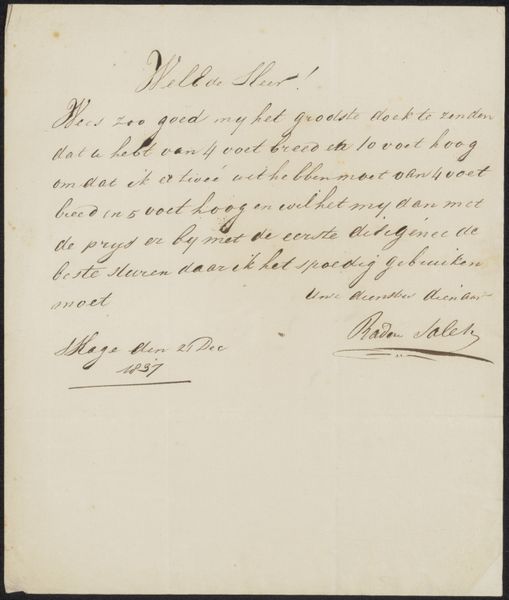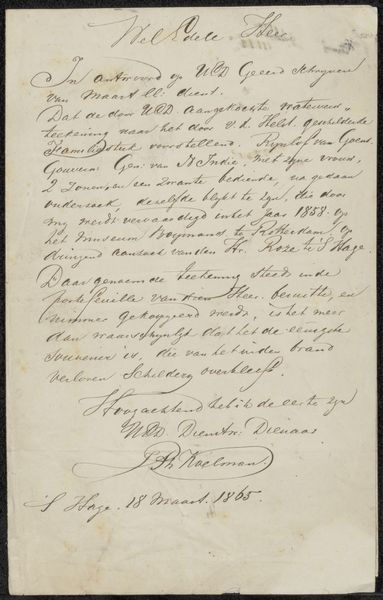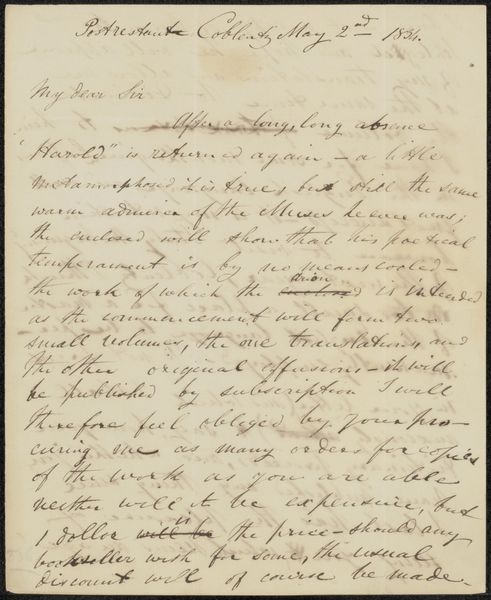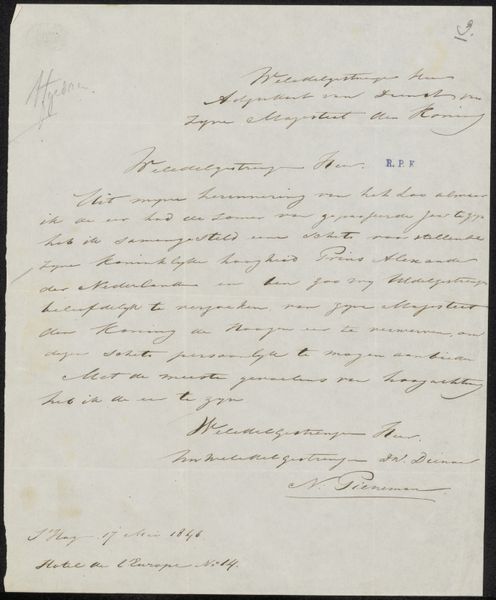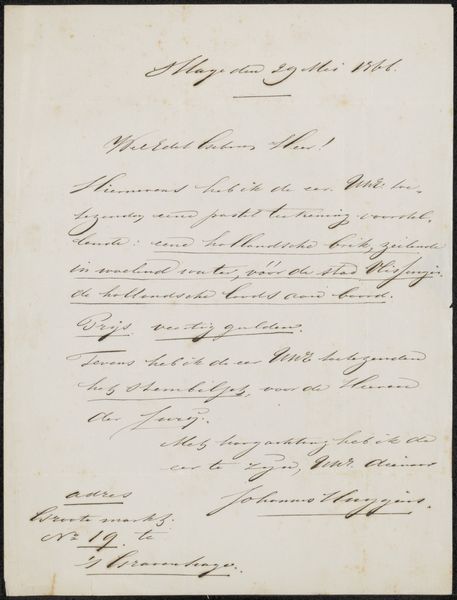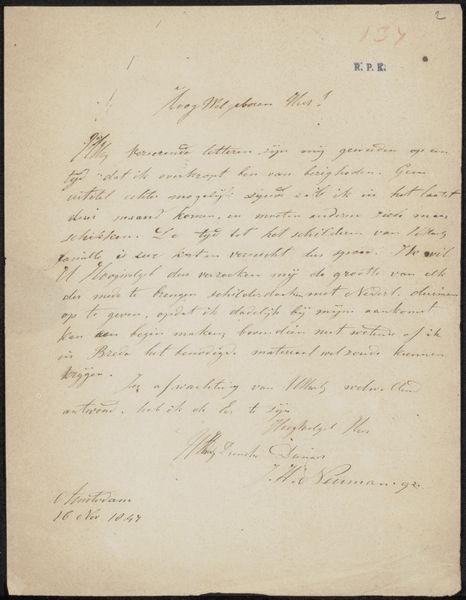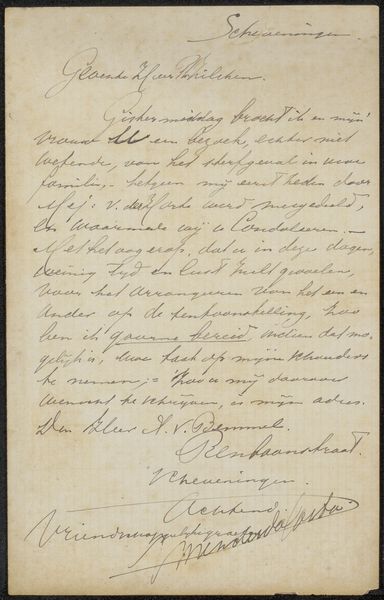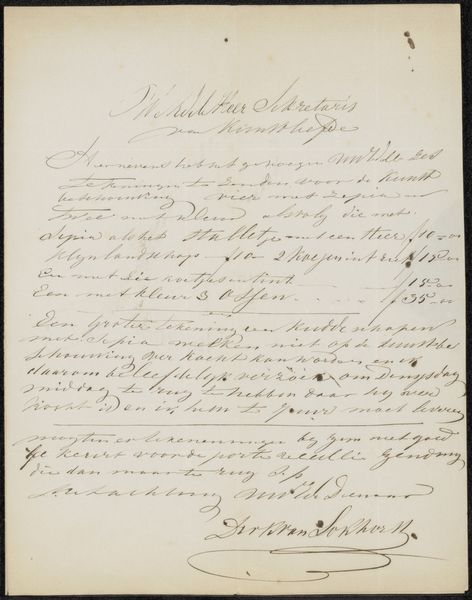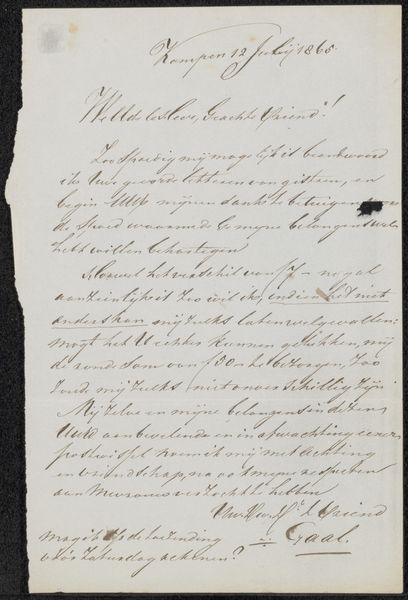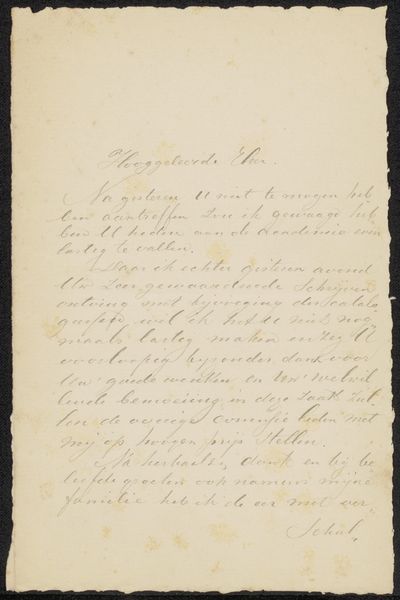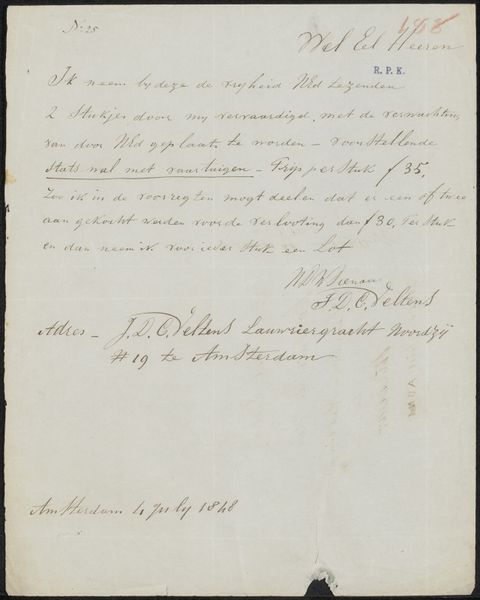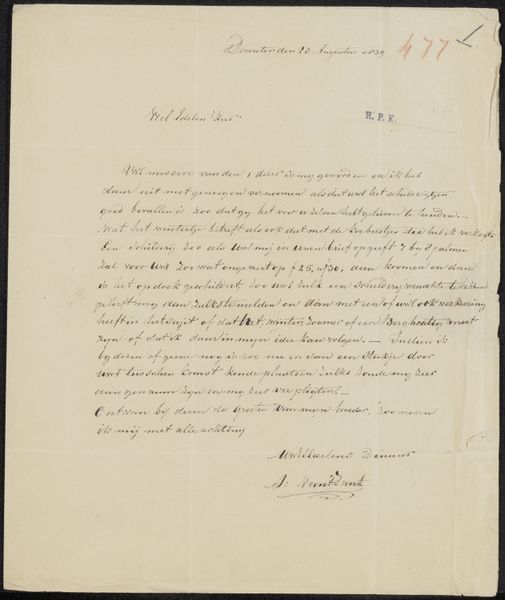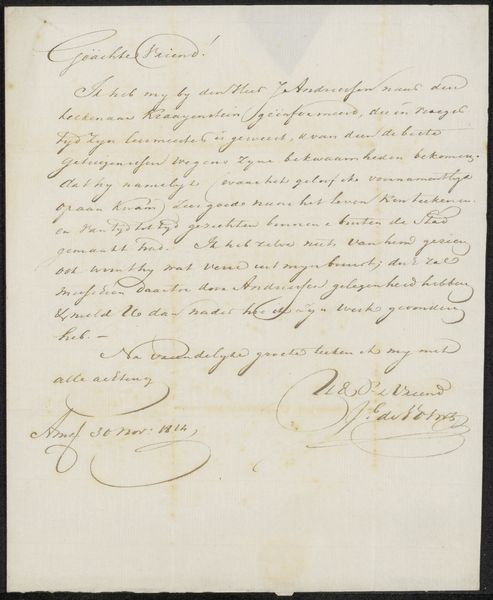
#
ink paper printed
#
hand drawn type
#
personal sketchbook
#
hand-drawn typeface
#
ink drawing experimentation
#
pen-ink sketch
#
ink colored
#
pen work
#
sketchbook drawing
#
sketchbook art
Copyright: Rijks Museum: Open Domain
Albert Verwey wrote this verse about the incomplete image of Homunculus by Jan Pieter Veth in 1884. The poem tells us that the young artist's talent still needs to reveal itself. This was the time of the Dutch literary movement known as De Nieuwe Gids. Writers and artists associated with this movement were interested in naturalism and psychological realism, and they often engaged with contemporary debates on social issues and the role of art in society. Verwey himself was one of the founders of the literary magazine De Nieuwe Gids. What does it mean to dedicate verse to an 'incomplete image' or praise a 'painter-son' who is yet to reveal his full talent? Perhaps this poem reflects the desire for art to be a force for social change, even if its potential is not yet fully realized. Historical resources such as letters, journals, and exhibition catalogs can provide further insights into the cultural context of this artwork, helping us to understand the social and institutional forces that shaped its production and reception.
Comments
No comments
Be the first to comment and join the conversation on the ultimate creative platform.
